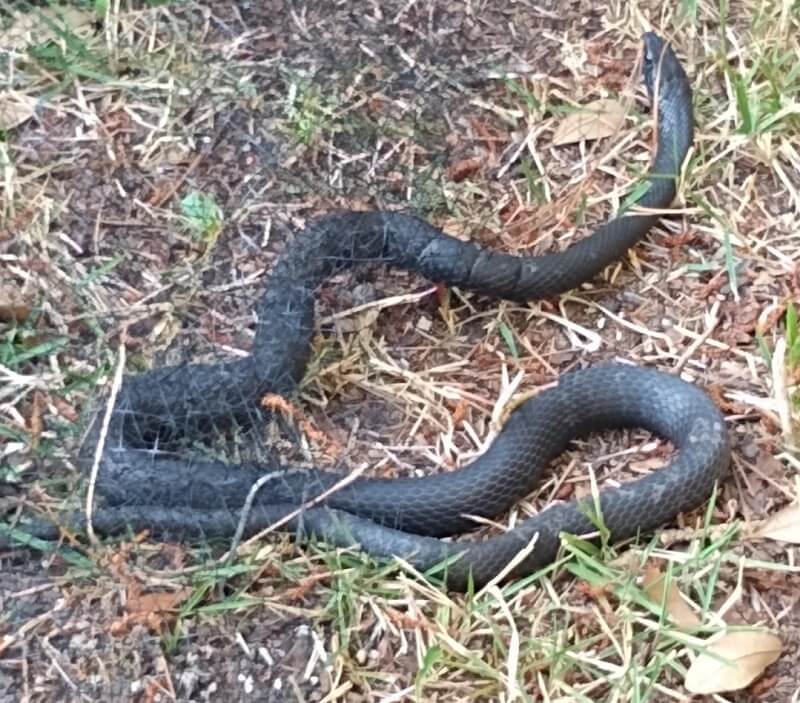A gardener encountered one of the downsides of using bird netting in their yard when they accidentally trapped a snake.
"So, we use bird netting to keep cats from digging up our seeds before they are established," the gardener wrote, posting on the r/gardening subreddit. "Today, we went outside to find this poor thing trapped in the netting. Four gloved hands, a pair of manicure scissors, and a text to my dad to confirm suspected ID, and in 5 minutes we freed and released it."

As several commenters pointed out, the snake in the accompanying photo was a non-venomous rat snake, which performs an important function in the ecosystem by keeping populations of mice and rats in check, making it a friend to (the majority of) humans.
Though this rat snake was saved, it surely had a distressing experience, and not every snake in its situation has been so lucky. "We had some bird netting up around our outside patio while our sod took root a few years back, but we weren't fast enough to save the snake unfortunately," one commenter wrote.
"Bird netting is an amazing snake catcher. We had some on our pond and had to save a bunch of snakes," another said.
The original poster also confirmed that this was not the first snake they had accidentally trapped, commenting: "We really just don't want to be responsible for harming any creatures (except the bugs that try to eat my garden of course). This is actually the second snake we've inconvenienced with our gardening."
One additional reason to steer clear of bird netting is that it is made out of polyethylene, or plastic. That means that when you put it in your garden, it leaches microplastics into the soil over time.
🗣️ How often do you flush your water heater?
🔘 Every six months ⏰
🔘 Every year 📅
🔘 I never do 🙅♂️
🔘 I have a tankless heater 🧠
🗳️ Click your choice to see results and speak your mind
Instead of incorporating plastic products into your garden, there are plenty of natural alternatives you can try first, including giving birds (or, in the case of the poster, cats) something else to snack on by setting up feeders.
Join our free newsletter for easy tips to save more and waste less, and don't miss this cool list of easy ways to help yourself while helping the planet.









